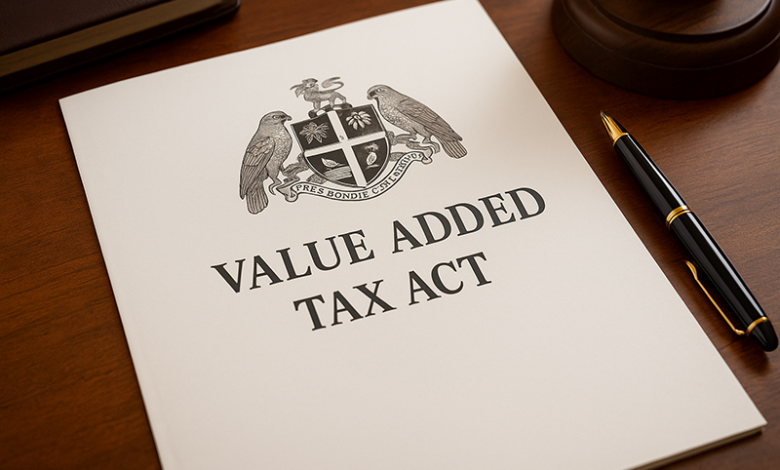Value Added Tax Act of 2005

The Value Added Tax Act of 2005 transformed Dominica’s indirect tax system by introducing Value Added Tax (VAT) on 1 March 2006, replacing the previous consumption, sales, hospitality, and entertainment taxes. Enacted under Act No. 7 of 2005, the legislation was part of a broader fiscal reform designed to modernize tax policy and simplify revenue collection via the Inland Revenue Division.
Legal Foundations and Administration
The Act establishes:
- A standard VAT rate of 15%, with a reduced 10% rate for hotel accommodations and dive services to support tourism activity.
- Zero-rated supplies such as basic foods, fuel, and medical goods, enabling VAT input claims despite a 0% charge.
- Exempted categories that include rent, financial, educational, and childcare services, subject to no VAT and no input credit.
- Registration thresholds of EC$250,000 annually, or EC$62,500 for hotel/diving providers .
- Monthly VAT filings and payments by the 20th, with input credits allowing businesses to offset VAT on purchases.
The Act also outlines enforcement mechanisms: audits, penalties, appeal procedures, and coordination with Customs to monitor import declarations and enforce compliance.
Notable Amendments
Amendments via the Value Added Tax (Amendment) Act 2008 and S.R.O. No. 5 of 2020 expanded and updated:
- Administrative powers to cancel registrations for non-compliance.
- Definitions regarding services, zero-rating, and exemption categories, including eco‑friendly vehicles and hygiene products.
- Enhanced penalties for non-filers, false invoicing, and tax fraud.
Economic and Revenue Impact
The Act broadened Dominica’s tax base and simplified revenue collection by replacing fragmented tax schedules. Zero-rating of essentials helped mitigate inflationary pressure, while the reduced rate supported tourism competitiveness. During implementation, public education campaigns involved over 300 businesses to ease compliance challenges with documents.
According to World Bank data, VAT collection is a significant component of government revenue, contributing to fiscal stability and enabling social spending.
Governance, Transparency, and International Standards
Dominica’s VAT framework aligns with OECD standards and is included in peer-reviewed tax transparency reports. The Value Added Tax Act of 2005 and its amendments appear in Dominica’s international tax treaty network and tax legislation inventories.
Audit procedures focus on record accuracy, the legality of input claims, and VAT invoice validity. Major delinquency can result in fines, license suspension, or public naming within tax bulletins.
Digitalization and Future Outlook
Dominica continues to modernize VAT administration:
- Launching e-filing portals, electronic invoicing, and digital tax training.
- Reviewing a proposed VAT rate adjustment of 1–2% as part of broader tax reform, although no changes have taken effect.
- Collaborating with regional bodies like ECCB and the World Bank on financial systems digitalisation.




